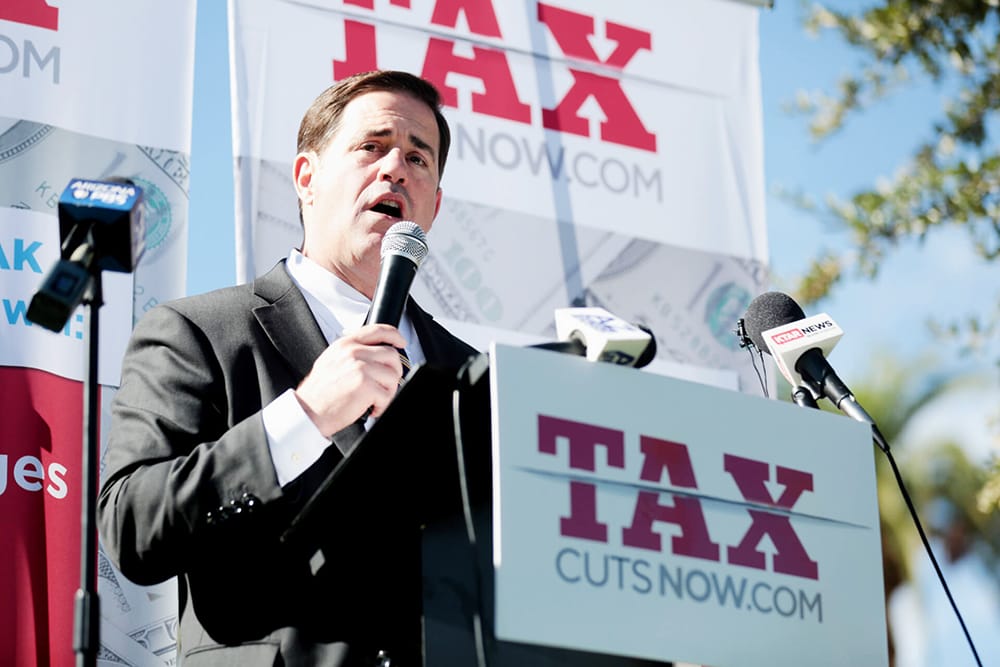Gov. Doug Ducey speaking with attendees at a “Tax Cuts Now” rally on Nov. 6, 2017. /Photo by Gage Skidmore / Flickr/CC BY-SA 2.0
By Laura Olson | Arizona Mirror
President Joe Biden’s massive pandemic stimulus law pumps a welcome infusion of federal aid into state and local government coffers — but one brief section is raising questions about whether states are barred from cutting their own taxes if they accept the federal help.
The Senate added language to the COVID-19 relief package prohibiting states and local governments from using the $350 billion in direct federal assistance “to either directly or indirectly offset a reduction in the net tax revenue” or delay the imposition of any tax or tax increase.
That provision doesn’t entirely prevent state officials from cutting taxes. Some scenarios, such as slashing one tax but offsetting it with a tax increase, wouldn’t be a problem.
But until the Treasury Department offers more detailed guidance on how it will interpret the new law, the provision is causing uncertainty, particularly in places like Iowa, where tax cuts already are in the works.
In Arizona, Gov. Doug Ducey urged lawmakers in January to “think big” about tax cuts, and his executive budget proposes $600 million in income tax reductions. A proposal from GOP lawmakers would cut tax collections by more than $1 billion and replace the state’s progressive income tax system, in which the wealthy are charged higher rates, with a flat tax that would impose the same tax rates on all Arizonans.





